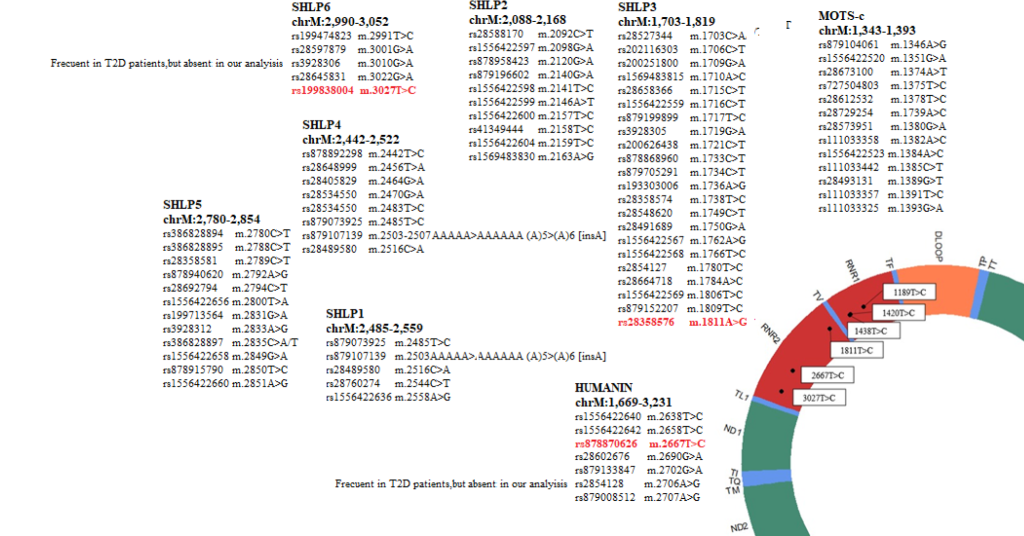Since the discovery of mitochondrial-derived peptides (MDP), their participation in cellular metabolism is no longer considered as the sole function of the mitochondria, but importance was also attached to its role as a source of protective factors of metabolic stress. These peptides are encoded in the mitochondrial genome and translated into the mitochondria or cytoplasm, to signal within the cell or be released and bind to membrane receptors. The objective of this work was explored and compare the frequency of MT-RNR1 and MT-RNR2 variants in sequences obtained from T2D individuals and control population. 213 different mitochondrial polymorphisms previously reported in the literature associated with T2D and cardiovascular diseases were analyzed. We can found three variants in the MT-RNR1 not related with MOTS-c coding sequence: m.1189T>C (rs28358571), m.1420T>C (rs111033356), and m.1438A>G (rs2001030); and secondly, three polymorphisms associated to MT-RNR2 m.2667T>C (rs878870626) related to humanin, m.1811A>G (rs28358576) in SHPL3 and m.3027T>C (rs199838004) in SHPL6 associated with statistical differences between the T2D and control group. All these findings were previously related to cardiovascular complications in literature and, as far as we know, relating for the first time in diabetic patients.

